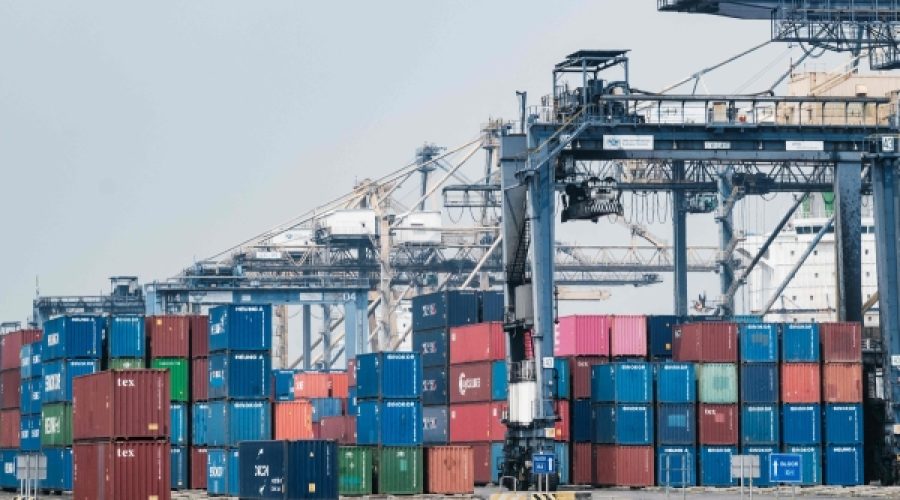Impact of Increased US Tariffs: What Oman Businesses Need to Know for Global Trade
Washington: The United States has implemented increased tariffs on goods from numerous trading partners, marking a significant escalation in President Donald Trump’s efforts to reshape global trade in favor of the U.S. The new tariffs took effect Thursday, following an executive order signed by Trump.
On the eve of these changes, Washington announced it would raise tariffs on Indian goods from 25 percent to 50 percent in three weeks and impose a 100-percent levy on various semiconductor imports globally. As part of the new tariffs, import duties for a list of trading partners have increased from 10 percent to between 15 percent and 41 percent.
Numerous imports from regions such as the European Union, Japan, and South Korea now face a 15-percent tariff, despite previous agreements meant to avert larger increases. In contrast, countries like India will see their tariffs rise to 50 percent, while Syria, Myanmar, and Laos face duties of 40 or 41 percent.
The Swiss government, which was unsuccessful in persuading Trump against a hefty 39-percent tariff, planned to hold an extraordinary meeting later Thursday. Trump expressed enthusiasm about the new tariffs, stating on his Truth Social platform, "IT’S MIDNIGHT!!! BILLIONS OF DOLLARS IN TARIFFS ARE NOW FLOWING INTO THE UNITED STATES OF AMERICA!"
This latest round of "reciprocal" tariffs aims to address trade practices that Washington deems unfair and expands upon measures introduced during Trump’s presidency. Leading up to the tariff changes, Trump had indicated he would double the planned duties on Indian goods, linking it to New Delhi’s ongoing purchases of Russian oil.
The Federation of Indian Export Organisations described the tariff increase as a "severe setback," affecting nearly 55 percent of the country’s exports to the U.S. Prime Minister Narendra Modi emphasized that India would not compromise its agricultural interests in negotiations over tariffs.
Additionally, Trump’s order threatens penalties on any countries that "directly or indirectly" import Russian oil, a critical revenue source for Russia amid its ongoing conflict in Ukraine. The United States has also imposed tariffs on specific sectors, including steel, automobiles, and pharmaceuticals.
Trump announced plans for an "approximately 100 percent tariff" on semiconductor imports, although companies investing in the United States or planning to do so would be exempt. The announcement boosted shares in Taiwanese chip manufacturer TSMC, while some other Asian manufacturers experienced declines.
Business groups and economists caution that these new levies could significantly impact smaller American businesses, potentially leading to inflation and hindering economic growth. Georgetown University professor Marc Busch predicts U.S. companies will likely pass some of these costs onto consumers, especially as inventories dwindle.
As negotiations continue, the nature of tariffs raises uncertainties for partners who have recently reached agreements with the U.S. For instance, differences remain between Tokyo and Washington regarding the implementation of reduced tariffs on Japanese automobiles. Currently, U.S. auto imports face a 25-percent duty, prompting Toyota to lower its profit forecast by 14 percent due to the tariffs.
While the situation remains complex, the U.S. and China have maintained a shaky truce in their trade standoff, set to expire on August 12. Recent data indicated a 21.7 percent drop in Chinese exports to the U.S. last month, contrasted by increases in exports to the European Union and Southeast Asia.
The European Union is actively seeking exemptions from these tariffs for its crucial wine industry, as industry stakeholders urged Trump in a letter to exclude wine from tariffs, citing its importance to restaurant margins.
In a separate development, the U.S. has escalated tariffs on various Brazilian goods from 10 percent to 50 percent, though some products, including orange juice and civil aircraft, are exempted, softening the overall impact. However, key goods such as Brazilian coffee, beef, and sugar are still subject to the increased tariffs.
Special Analysis by Omanet | Navigate Oman’s Market
The recent escalation of U.S. tariffs poses significant challenges and opportunities for businesses in Oman, particularly those reliant on exports to affected markets. Investors should now evaluate their supply chains for vulnerabilities and consider diversifying to mitigate risks associated with heightened tariffs on key sectors. Additionally, enterprising local firms could explore niches in the U.S. market where domestic competitors may falter due to increased costs, positioning themselves strategically for growth in a shifting landscape.



